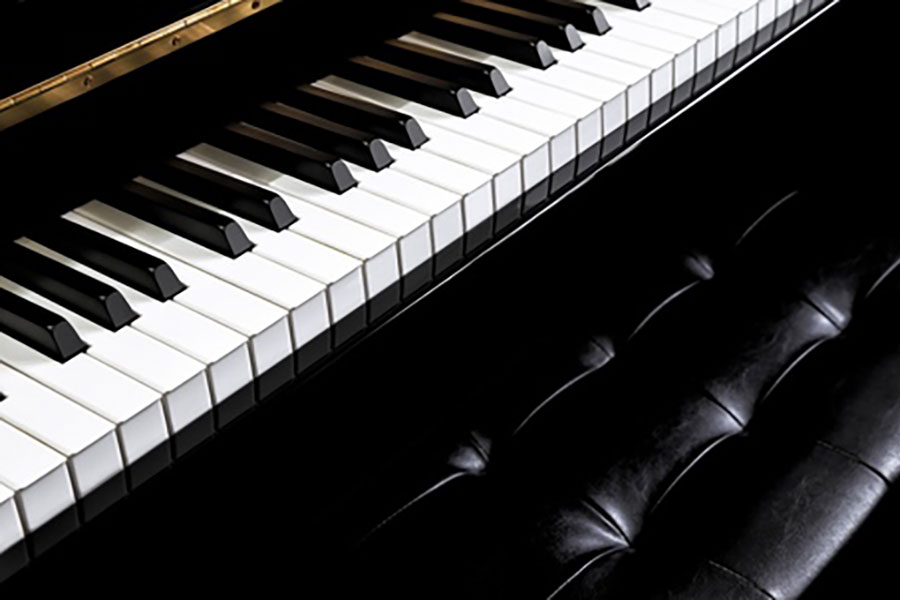Who Gets the Steinway? Unique Assets and Your Estate Plan

Crafting a great estate plan can be a fascinating exercise, yet most of us never quite get around to it. Perhaps it’s a bit like a challenging recipe: start with a natural reluctance to contemplate your own demise, sprinkle in some unique family dynamics, season liberally with ever-changing tax laws and fold in that one heir you’re not quite sure about. Is it any wonder we procrastinate?
As you think about passing on the fruits of your life to those you love, one often-overlooked aspect of estate planning is how best to distribute unusual or unique assets. Attorneys like to joke that a trust can be defined as “a large pile of money surrounded by bickering family members.” But what happens when that pile also includes family heirlooms, collectibles, art, china or jewelry? If any of these will make up part of your estate, a little forethought can make the difference between leaving your executor with a nightmare and leaving grateful heirs with a treasured legacy.
Planning for Your Unique Assets
A Savant advisor was recently helping a couple complete a list of their assets when the wife mentioned that she had “a mug collection.” When the advisor probed, he was surprised to learn that she had become one of the world’s foremost collectors of Starbucks mugs, with a collection valued at more than $100,000. Neither her children nor her husband shared her passion, so simply some day leaving a few hundred Starbucks mugs to each beneficiary wasn’t the right solution.
Perhaps you haven’t amassed any major collections but you do have one or two very special items. Dividing an Andrew Wyeth sketch or a vintage Steinway between three beneficiaries is impossible (or certainly unwise!), so how should such an asset be handled to ensure that your heirs are all treated equitably, even if it’s impractical to distribute your assets equally?
In each of these examples, leaving written instructions for your executor (or successor trustee for assets held in a trust) goes a long way toward keeping prized assets from becoming messy liabilities. No one will know better than you what should be sold or donated vs. what items should be distributed directly to heirs. If your son has always had the eye for art in your family, then it’s a fairly simple matter to specify that the Wyeth sketch goes to him and your other heirs receive a greater amount of cash based on the appraised value of the art.
Valuing and selling works of art or a vintage Steinway will take some time and care on the part of your executor, but at least they’ll be able to find the players who do that sort of thing. But how do you value and sell several thousand Starbucks mugs? Here’s where the unique knowledge of you, the collector, can save the day for your executor and maximize the value received by your heirs. Undoubtedly there’s a “secret society” of those who have similar collections, linked by Facebook groups, newsletters, websites and regional gatherings. You know how you’d go about disposing of your collection, but don’t assume that your spouse or your children have those insights. A handwritten page or two of instructions could literally be worth more than its weight in gold. Ask your attorney how to make sure this guidance will be found and honored.
Planning for Your Spouse’s Unique Assets
Men also like to collect things (if you haven’t noticed), and unfortunately, many of these things rust.
Although admittedly none of these are the exclusive domain of the male species, women often discover in their mate a strange fascination with firearms, boats, airplanes, tools and old cars. Unless you live in the desert or his treasures are kept in a climate-controlled, low-humidity storage facility, time will not be your friend. For example, allowing an airplane to sit un-flown in a hangar for even six months will depress its value and frighten off potential buyers. Boats need to be winterized. Old cars need to be driven.
In addition to the “who, where and how” which should go into that page or two of instructions your spouse will be working on this weekend (right?), ask him to spell out what steps are needed, and which of his buddies can help you, to maintain those unique assets in top condition until a sale can be arranged.
Planning Your Legacy
We’re all going to leave a legacy of some kind. Why not invest a little time and thought now to convey your valuables in a way that also speaks of your values? A great estate plan shows that you care; your heirs, and your executor, will thank you.
